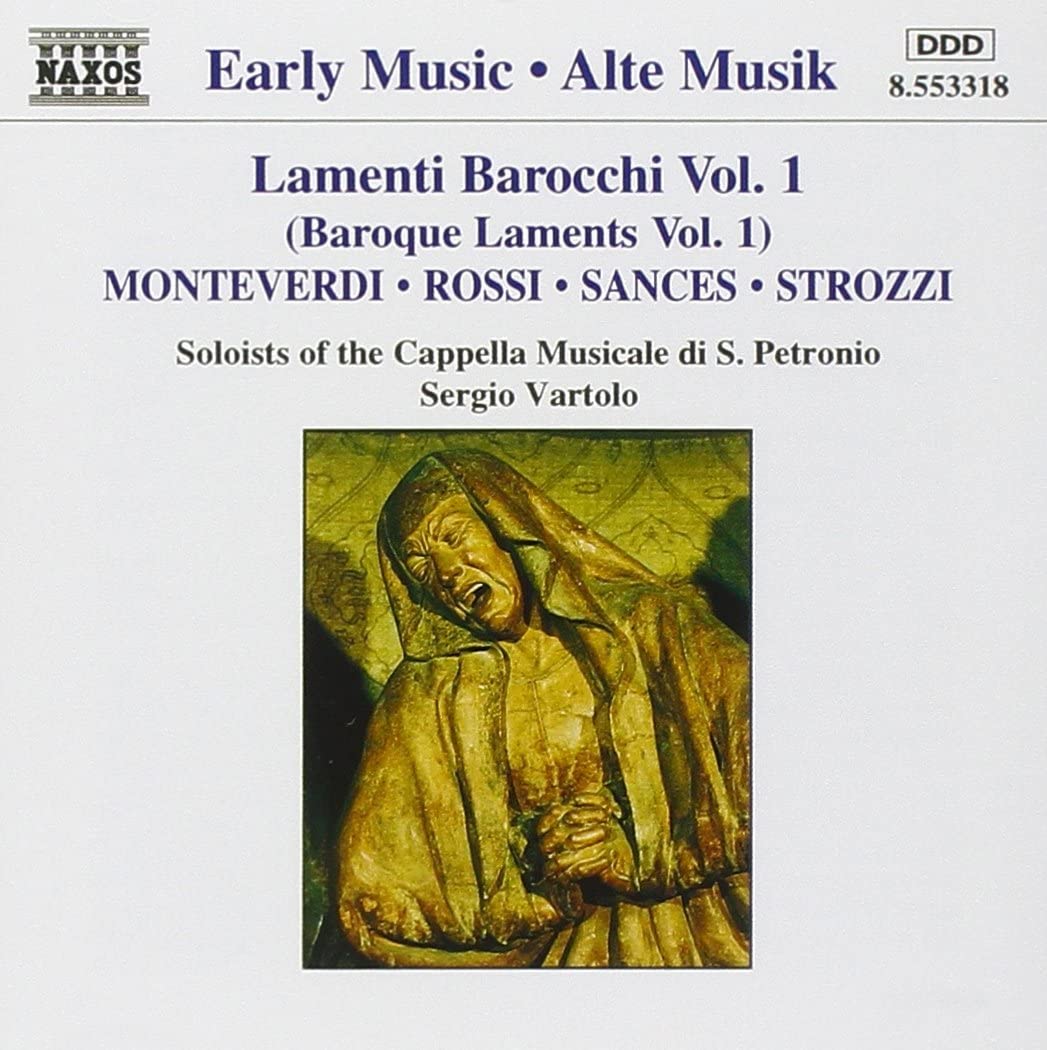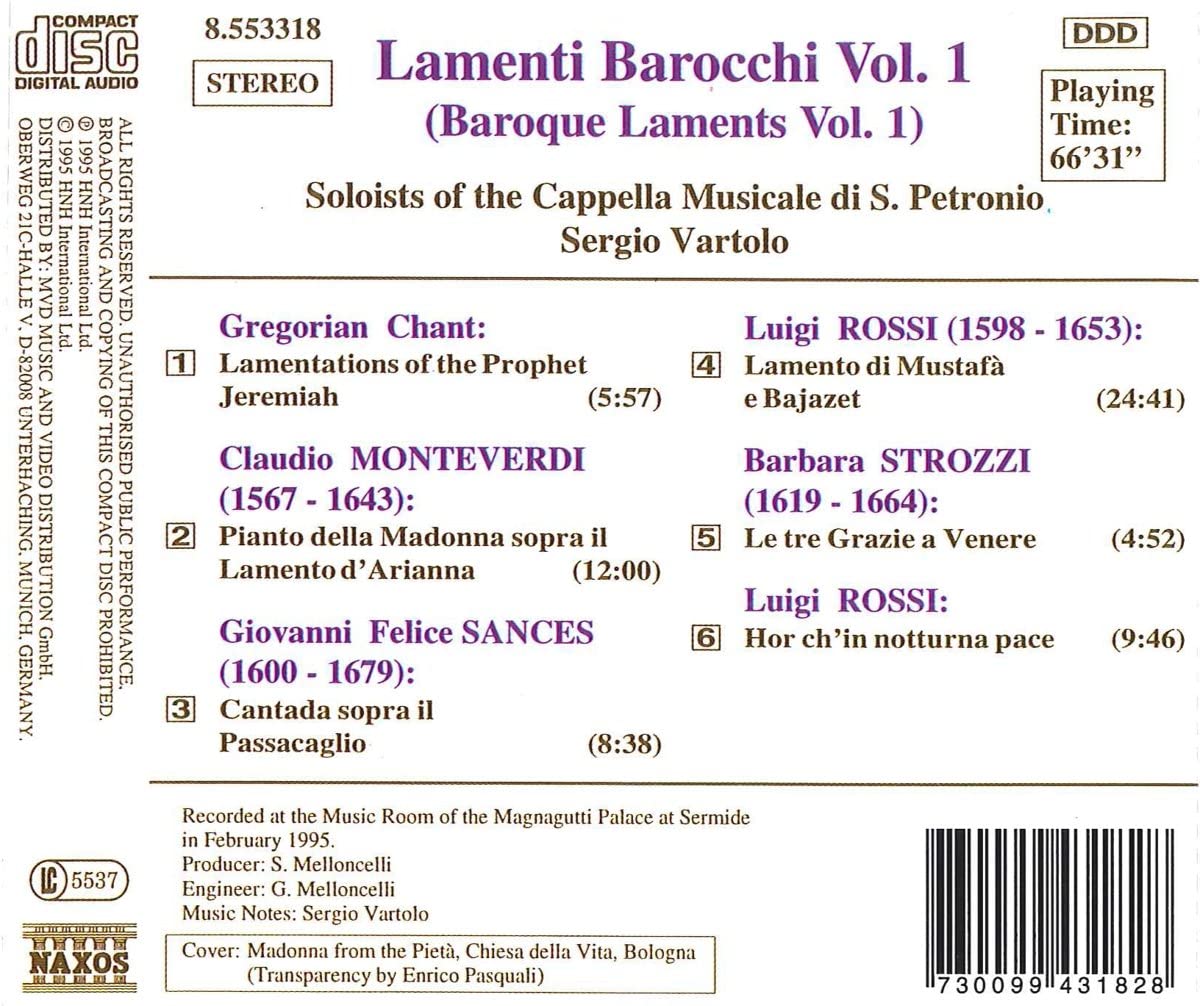
classical music distribution


(Produkt nie został jeszcze oceniony)
kompozytor
różni kompozytorzy
tytuł
Lamenti Barocchi, Vol. 1
pełny spis kompozytorów
Monteverdi, Claudio;
Strozzi, Barbara;
Rossini, Gioachino;
Sances, Giovanni Felice
Strozzi, Barbara;
Rossini, Gioachino;
Sances, Giovanni Felice
wykonawcy
Vartolo, Sergio;
San Petronio Cappella Musicale Soloists
San Petronio Cappella Musicale Soloists
nr katalogowy
8.553318
opis
The Lament itself has an ancient tradition as a literary and dramatic form, and hence as a musical entity .The most influential and effective of all Baroque musical laments was Monteverdi's Lamento d' Arianna (Lament of Ariadne), the only surviving part of his opera Arianna, with a libretto by Ottavio Rinuccini, written for and performed in Mantua in 1608, the year after Orfeo. Ariadne, daughter of King Minos of Crete, helps the Athenian Theseus escape from the labyrinth and the minotaur to which he and his companions were to be sacrificed. Sailing homeward, Theseus abandons Ariadne on the seemingly deserted island of Naxos, and her lament, given literary expression by Ovid, expresses her feelings at this desertion. It will be recalled that Ariadne subsequently found consolation with Bacchus and his followers, while the return to Athens I of Theseus was not without its own untoward outcome, when a signal intended to assure his father of his safe return was mistaken, leading the father of Theseus to kill himself. Monteverdi arranged the Lament as a madrigal in 1614 and in 1640 restored it to its original monodic form, this time with a Latin sacred text, including it in his volume of madrigals, Selva morale e spirituale. By this time the lament of Arianna had been much imitated.
nośnik
CD
gatunek
Muzyka klasyczna
producent
Naxos
data wydania
14-08-1995
EAN / kod kreskowy
730099431828

(Produkt nie został jeszcze oceniony)
cena 58,00 zł
lubProdukt na zamówienie
Wysyłka ustalana indywidualnie.
Darmowa wysyłka dla zamówień powyżej 300 zł!
Darmowy kurier dla zamówień powyżej 500 zł!
sprawdź koszty wysyłkiProduktu jeszcze nie zrecenzowano, chcesz być pierwszy?
Klienci, którzy kupili ten produkt, kupili również
różni kompozytorzy
Baroque Opera Classics: Deidamia, Cavalli, La Didone, Ercole Amante, Adriano in Siria, Zoroastre, Dove e Amore e Gelosia
DVD OA 1204 BD
Pozostałe płyty tego kompozytora
Rossini, Gioachino
Rossini: Complete Overtures 1 - La gazza ladra, Semiramide, Otello
8.570933
Pozostałe płyty tego wykonawcy
Napisz recenzję dla: Lamenti Barocchi, Vol. 1
Zapytaj o dostępność produktu
Twoje zapytanie:
Odpowiemy na adres:
Produkt został dodany do koszyka

różni kompozytorzy
Lamenti Barocchi, Vol. 1
1 szt











































